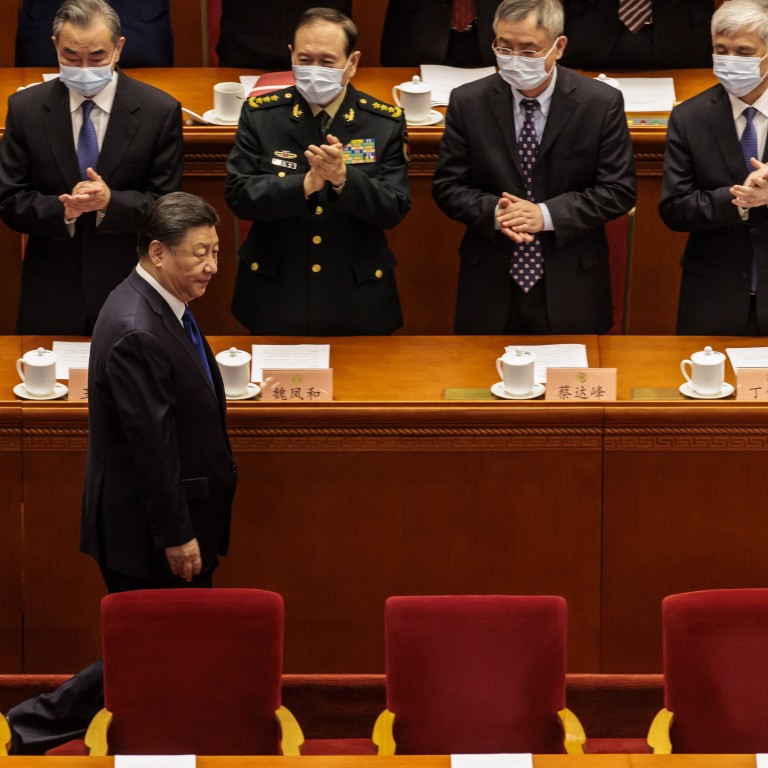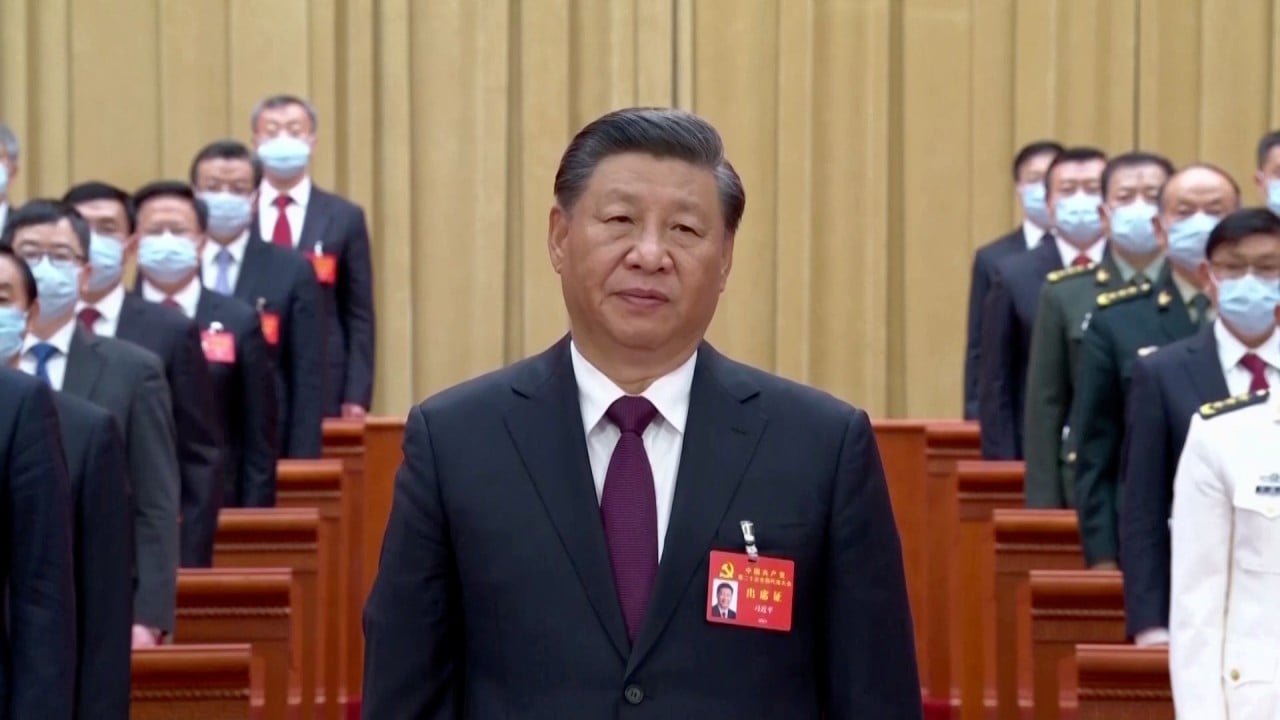
China ‘two sessions’ 2023: Xi Jinping vows ‘forceful’ overhaul of finance and technology sectors
- ‘Far-reaching’ changes to have ‘profound influence’ on economy and society, Chinese president tells leaders of political groups
- Details of reform package approved by Central Committee to be revealed when presented to NPC for endorsement at upcoming annual session
The “far-reaching” changes will target deep-seated vested interests and have a “profound influence” on the country’s economy and society, Xi told leaders of political groups supportive of the ruling Communist Party.
“The 20th party congress has given clear instructions on reforming party and state institutes, and deepening reform of the financial system, completing the party’s concentrated leadership over technology,” he said, according to a readout of Tuesday’s meeting from Xinhua.
The new Central Committee had held its first plenum on October 23, soon after the 20th edition of the party’s five-yearly national congress, where Xi secured a historic third term as the party’s secretary general.
While Xi’s speech to the political leaders echoed his work report to the party congress in October, it represented the first confirmation that the changes mentioned would be included in the imminent overhaul plan.
He was referring to a plan to overhaul several party organs and government departments that will be unveiled when the National People’s Congress – China’s top legislative body – begins its annual session on March 5.
The reform will also seek to strengthen party-building in the private sector, Xi told the leaders.
What will China’s ‘two sessions’ 2023 bring?
The proposed reform package was passed at the Central Committee conclave which ended on Tuesday. It will next be submitted to the NPC for endorsement.
The plan will “strengthen the leadership of the Communist Party”, according to the readout from the conclave, which did not offer details of the package.
The overhaul will involve central and local party institutions, the NPC, the State Council or China’s cabinet, and the Chinese People’s Political Consultative Conference (CPPCC), the country’s top advisory body, the readout said.
The CPPCC is due to start its annual session a day ahead of the NPC – on March 4.
Known as China’s “two sessions” – the annual meetings of the top legislative and political advisory bodies bring together key leaders to discuss proposals and vote for legislation, offering insights into the government’s reform measures and its future direction.
This year’s “two sessions” will see China complete a twice-a-decade leadership transition, with a reshuffle of top government jobs, including the naming of a new premier, while Xi is expected to secure a third term as president.
However, the exact duration of China’s most-watched event for foreign and domestic media generally remains a mystery until the day before the curtain rises.
Xi to focus on stability and self-reliance after ‘two sessions’, analysts say
The only clues regarding its duration may be found in the massive security arrangements around the event.
The Beijing municipal authority last week released a notice banning the use of small flying objects – such as drones, balloons and unapproved aircraft – within the city’s administrative region for the two weeks from March 1 to 14.
Also last week, China Post, the state-owned official postal service, issued a notice requiring an extra layer of security checks for all mails and parcels sent to Beijing.
The readout of Tuesday’s proceedings included a pledge to roll out a series of “strategic” and “innovative” reform measures in the near future.
“[We must] achieve new breakthroughs in important areas and key factors,” it said.
The meeting also called on attendees, which included hundreds of full and alternative members of the Central Committee, to “try to fulfil this year’s targets”, without specifying what those targets are.
China has entered a period where developmental challenges and risks coexist and the future is increasingly uncertain and unpredictable, the readout said, with all party members urged to be prepared to “face major tests, even in the midst of a storm”.


